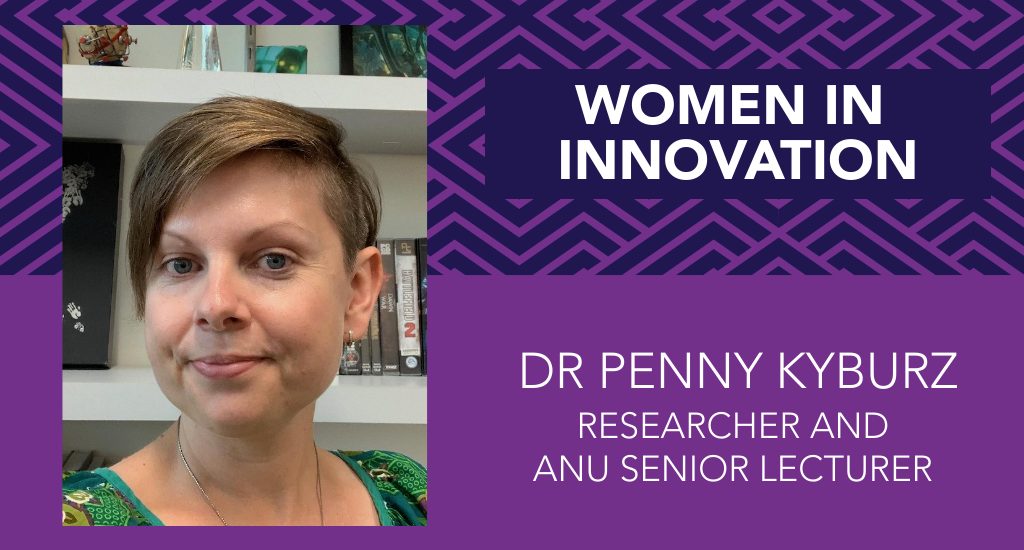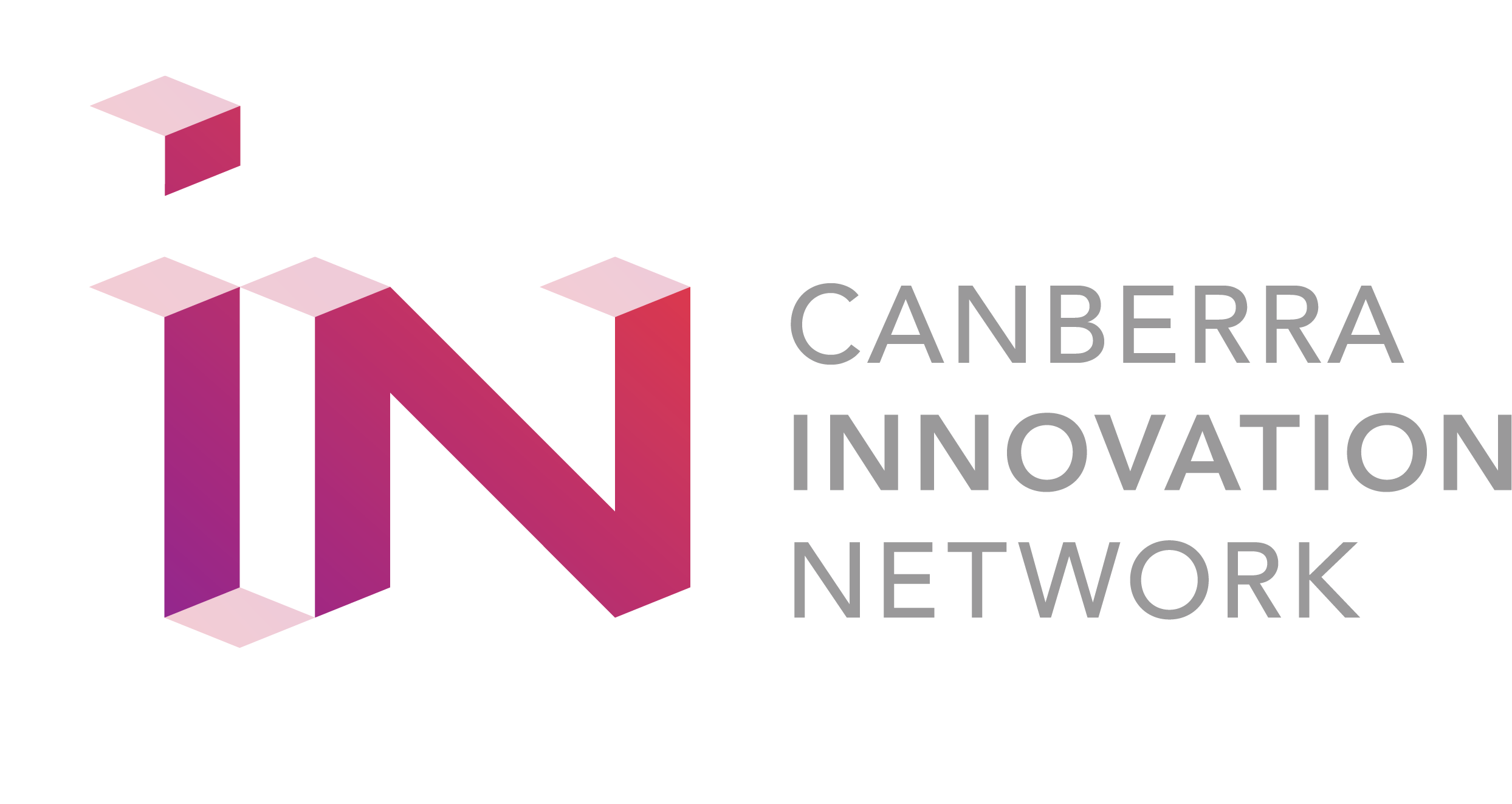- 24 March 2022
- Posted by: Canberra Innovation Network
- Category: General News

We interview women in our community about innovation and what drives them to make a difference in their industries. This week we spoke to Dr Penny Kyburz, Researcher and Senior Lecturer at the Australian National University.
What are you working on?
I am a researcher in the areas of artificial intelligence and human-computer interaction in video games and extended reality and an experienced game developer. I use video games to better understand humans, machines, and the world around us. I work collaboratively with government and industry to use games and virtual environments for innovative applications, such as human-AI teaming.
I developed the GameFlow model, which is a seminal model of enjoyment in video games, and authored a book on Emergence in Games. I have contributed to 20 digital games, which have garnered many awards, including four prestigious BAFTA nominations. I have devised usability methods and led usability testing on AAA games. I also worked in the Senate as a policy adviser in digital rights, communications, and disability. I lead the ANU Games Research Group and convene ANU Computing’s Cooperative Education Programs. I am an advocate for women in technology and games and Chair of the ANU Family Friendly Committee. I founded the ANU Gender Equity in Engineering and Computer Science (GEECS) initiative and am working in collaboration with universities around Australia to improve diversity in computing education and careers.
Why is innovation important to you?
Innovation is important to me because it is what drives us forward as individuals, communities, societies, nations, and the world.
If we want to see change in the world, then we need to work on ways to think and act differently, and to facilitate others to do so as well.
What drives you to make a difference?
I am driven to do better and be better. Technology provides opportunities for building better, fairer, and more inclusive societies and for living more harmoniously with our natural world. However, it also provides opportunities for doing the opposite. It is important that we consider and decide on how we want to use technology for the betterment of the world and that we keep ethics and values at the centre of everything that we do.
Do you have any advice for getting more women into the innovation ecosystem?
There are major and systemic barriers to getting more women into technology and entrepreneurship. Two of the main problems are the limited number of women entering these fields, as well as high rates of women leaving once they do enter. We need to work collectively for cultural change so that girls and women of all ages and career stages feel belonging in these areas and careers. More visibility for women already in these fields is very important, as it helps to raise awareness for those who might want to join.
What are you proud of right now?
I am proud of my work to tackle the systemic barriers that exist for women and girls in technology education and careers. ANU is working with other universities around Australia to make key changes and promote initiatives to enable women to access, belong, and stay in technology education and careers.

